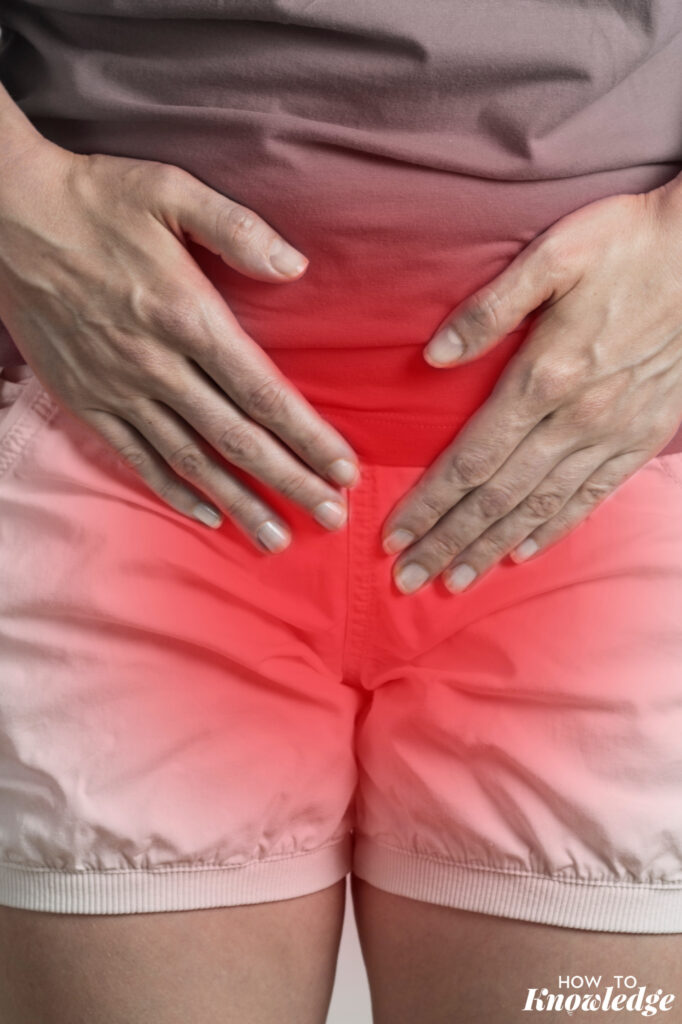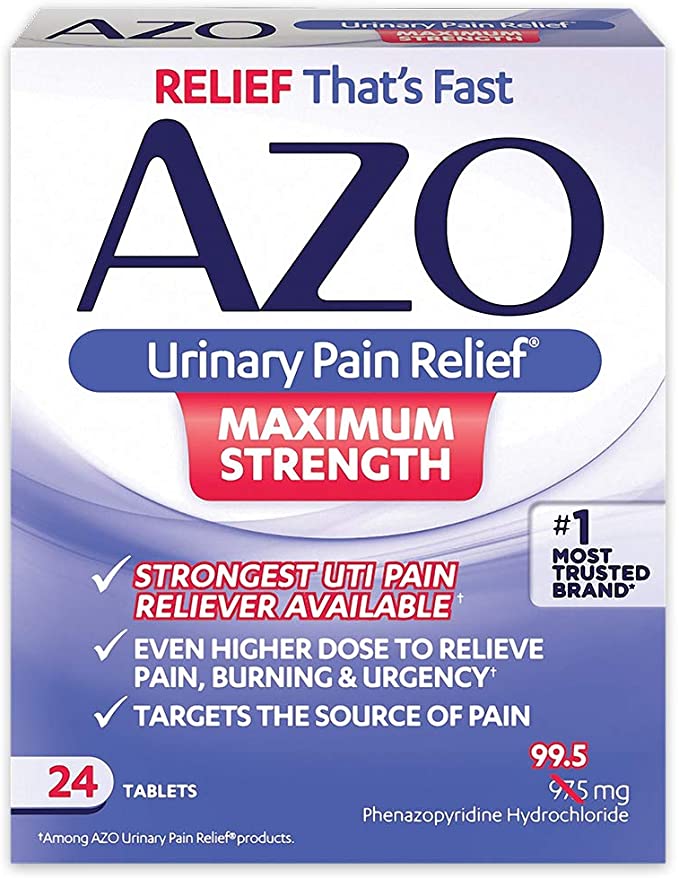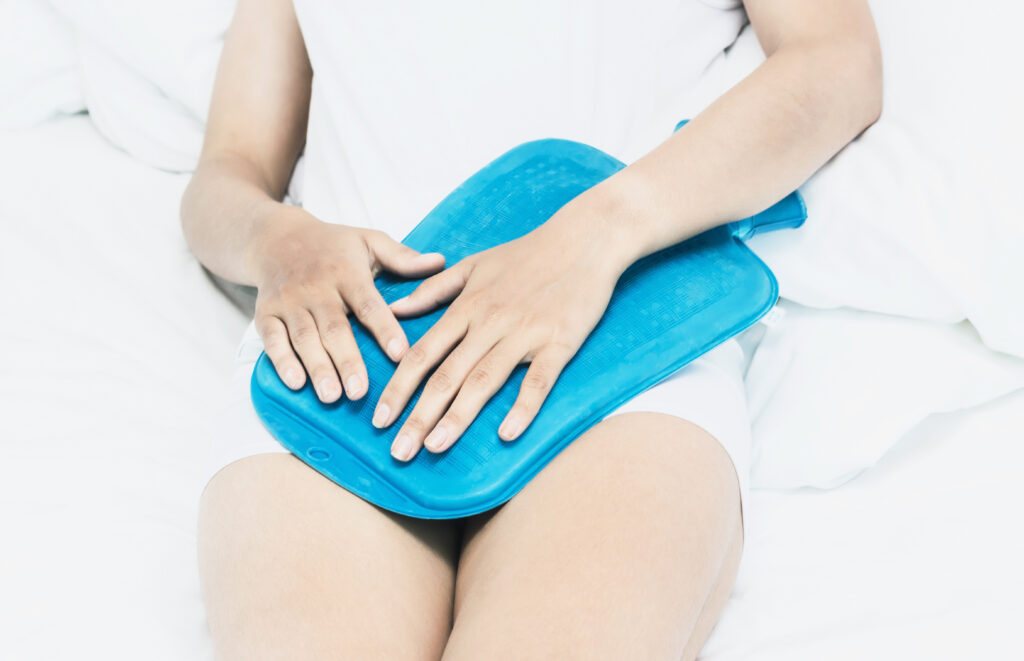You might have experienced it, too: a burning sensation accompanied by pelvic pain and bloody urination. If that’s how you feel, you may have a urinary tract infection (UTI) and need treatment.
UTIs can start anywhere in the urinary tract, including the bladder, urethra, and kidney, but the result is the same – pain!

According to the National Kidney Foundation, 1 in 5 females will experience a UTI at some point in their lifetime, and although less common, men can get it too. Other recent studies indicate that more than half of all women will experience UTI at some part of their lives.
The symptoms of the infection are unbearable, so you’re likely wondering how to relieve UTI pain and other symptoms at night. If that’s you, you just landed a jackpot in this article.
This post will provide you with everything you need to know about a UTI, including what it is, how you can deal with it at night, and how to prevent it in the first place.
Let’s get started!
What is UTI?
UTI is an infection in any part of your urinary tract system – your urethra, bladder, kidneys, and ureters. Most infections involve the lower urinary tract, including the urethra and bladder.
UTIs are more common among women and older adults and least common in young children under five years. Girls are more prone to a UTI infection because they have a shorter urethra than boys.
Most UTIs happen when bacteria enter the urinary tract through the urethra and start to multiply in the bladder. 75% to 95% of UTIs are caused by Escherichia coli, a bacteria that resides in your intestines.
Getting a UTI is pretty easy. Bacteria in the vaginal, anal, and genital areas may enter your urinary tract through the urethra, travel to the bladder, and cause an infection.
In most cases, this happens during sexual intercourse when bacteria from your partner’s genitals, fingers, anus, or sex toys get pushed into your urinary tract through the urethra.
What are the symptoms of UTIs?
UTI symptoms may vary based on your sex and age, the severity of the infection, and the type of infection you have.
Generally, you’re likely to experience the following symptoms:
- Cloudy urine
- Frequent urination
- A burning sensation during and after urinating
- Blood in the urine
- Passing frequent, small amounts of urine
- Pungent-smelling urine
- Pelvic pain in females
- The constant need to urinate
- Vomiting/nausea
- Fever
- Abdominal pain
Depending on the type of UTI, you may experience more specific symptoms. Kidney infections, bladder infections, and vaginal infections, at times, all have similar symptoms.
For the best diagnosis and treatment, it’s always advisable to visit healthcare professionals. The physician will take your urine sample, do a urine test and administer the best UTI medications or recommend the best home remedies.
How can I deal with UTIs at night?
If you’ve ever contracted UTI, we can agree on the same thing: the night is their worst time of the day. Less frequent urination at night allows the urine to increase discomfort and pain in the bladder.
The good news is that there are several ways to deal with UTIs at night and reduce their symptoms. Here are the ten best ways to deal with painful symptoms of UTI at night:
Drink plenty of water
The burning sensation and other types of pain while urinating may tempt you to reduce your daily water intake. After all, avoiding the restroom will help prevent the pain, right?
You’re wrong!
Failing to drink enough water causes the bladder to be more sensitive, and the urine becomes more concentrated, aggravating the symptoms. On the other hand, drinking lots of water helps flush bacteria out of your bladder, reducing pain and other symptoms.
In fact, research shows that the intake of plenty of fluids, including water, reduces UTIs requiring antibiotics by 58%.
However, it’s important to note that this advice mainly applies during the day. Limit your water intake at night to prevent the frequent urge to urinate from disrupting your sleep.
Empty bladder fully
Resident bacteria are likely to grow and multiply in your bladder when urine stays there too long. As such, it’s always recommended that you empty the bladder fully (both daytime and nighttime) when you urinate.
Avoid beverages and foods that will irritate your bladder
Drinking alcohol and coffee and eating spicy foods will likely irritate your urinary tract. They can reduce the blood flow to your bladder, making it hard for your immune system to fight the infections.
Some soft drinks will also irritate your bladder, making the situation worse.
So if you can, avoid spicy foods, reduce or cut alcohol consumption, and avoid caffeine and other soft drinks when you have a UTI or are at risk of contracting one.
Medical treatment for nighttime UTI symptoms
Perhaps the best and most authentic way to relieve UTI discomfort at night is by visiting your physician to treat the infection. They’ll give medications to stop the infection and relieve pain, as discussed below:
Stopping the infection:
Depending on the type of bacteria in your urine and your current medical conditions, your healthcare practitioner may recommend antibiotic medication for UTIs, including:
- Cephalexin
- Ceftriaxone
- Trimethoprim
- Nitrofurantoin
- Fosfomycin, etc.
If you have a kidney infection or complicated UTI, your doctor may prescribe fluoroquinolones antibiotics, like ciprofloxacin or levofloxacin. Your physician may also use other treatment methods other than antibiotic-based treatments.
Relieving pain:
Your doctor may administer oral antibiotics to ease discomfort caused by UTIs. Alternatively, the physician can offer prescription medications to relieve pain.
For instance, you may be given UTI analgesics, including phenazopyridine, to relieve pain, burning, itching, and urinary urgency. This medication is available in both over-the-counter and prescription forms.
I’ve found that AZO Maximum Strength works great for getting rid of the pain in the middle the night.

Use a heating pad
UTIs will likely lead to lower abdomen and back pain. You may use a hot water bottle or a heating pad to reduce the pain and cramping in your lower abdomen.
Alternatively, you may take a warm shower. Adjust the water to comfortably warm and take a shower.
The warm water will soothe the cramping or burning sensation you may be experiencing.
Warning:
- DO NOT take bubble baths, as that will make the condition worse
- If you’re using the electric heating pad, ensure you do not sleep while it’s on

Take Sodium Bicarbonate
Consuming Sodium Bicarbonate will help minimize the acidity levels in urine, easing the symptoms of a UTI. However, high doses may pose health risks to most people.
How do I prevent UTIs?
Tired of having to deal with UTIs? The best remedy is simple: prevent one from ever striking you in the first place.
Here are 7 tips to avoid future infections:
Make cranberry juice your friend
Yes, cranberry juice has often been classified as a UTI treatment option, but it can only be used as a preventative measure. The juice makes urine more acidic and prevents bacteria from attaching to the bladder’s walls.
Here is how the juice works:
- UTIs occur when the E. Coli bacteria attached to your bladder
- Cranberry products have A-type proanthocyanidins (PACs)
- PACs prevent the bacteria from attaching to your bladder
Remember: Cranberry products won’t cure the UTI infection but will flush the bacteria out. Take enough amounts of the juice to prevent the infection.
Observe good hygiene after sex
Sexual activity is the main culprit for UTI infections. To stay safe, observe good hygiene and clean your genital areas after sex – and ask your partner to do so, too.
Limit antibiotic consumption
Frequent antibiotic use can lead to UTIs. These drugs can cause diarrhea, allowing unwanted bacteria to get into your urethra.
So, antibiotics can heal you when fighting one illness but lead to another problem. So if you can, reduce your antibiotic consumption.
Use probiotics
Probiotics are beneficial bacteria that can help keep your urinary system healthy and free from harmful bacteria. These bacteria can prevent and treat UTIs by:
- Preventing harmful bacteria from sticking to your bladder
- Producing hydrogen peroxide in urine – has antibacterial properties
- Reducing urine’s pH, making the conditions unfavorable for bacteria
Probiotics exist in several products, including yogurts, sauerkraut, kefir, and some types of cheese. You may also buy probiotic supplements online or from local stores.
Stay hydrated
Drinking a lot of water will help you flush out unwanted bacteria from your body. And don’t hold the frequent urge to urinate.
Get vitamin C supplements
Vitamin C is an antioxidant that helps boost your immune system. It also reacts with nitrate in your urine to form nitrogen oxides that kill bacteria.
Vitamin C also lowers urine pH, making it inhabitable to bacteria, including E. Coli. Taking it along with other supplements may help maximize its benefits.
Wipe front to back
Wipe from the front to the back to avoid unwanted bacteria entering the vaginal area. This tip applies mostly to ladies, but it can help men, too.
When to see a healthcare provider?
Yup, conversations about UTIs can be uncomfortable, but it’s best to seek professional medical advice if you’re experiencing symptoms consistent with a UTI. The doctor will likely give you antibiotics and other medications to treat the condition.
Seek further medical attention if:
- You’re experiencing severe symptoms of UTI like high fever
- You’re vomiting uncontrollably
- You have a recurrent UTI.
The sooner you visit a healthcare professional, the sooner you’ll ease the symptoms of a urinary tract infection and get a good night’s sleep.
The bottom line
UTIs are associated with uncomfortable symptoms that can interfere with sleep. This paper provides you with several tips to help you deal with a UTI at night and prevent the infection from striking you in the first place.
Leave a Reply